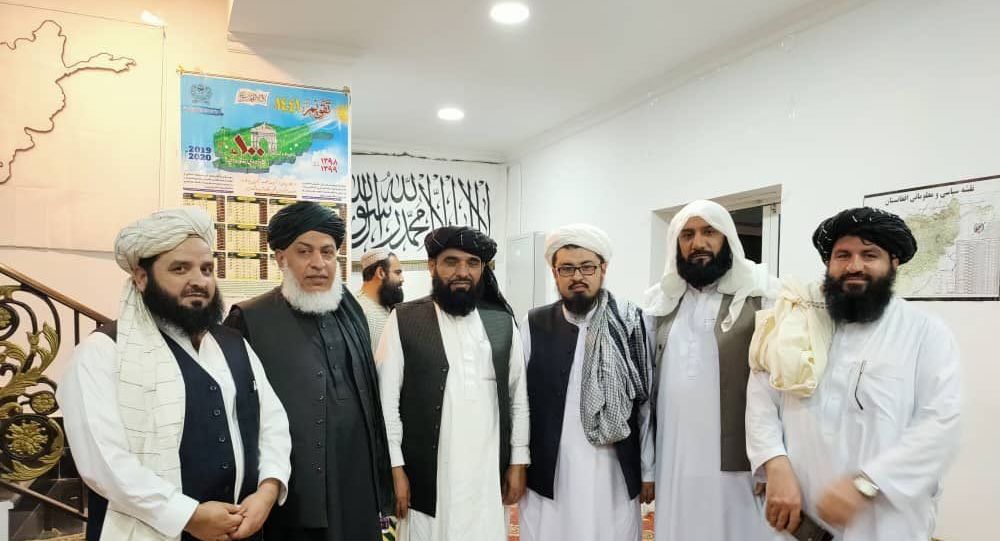Speaking in an interview with the website of the Strategic Council on Foreign Relations about the Taliban’s measures after the occupation of Afghanistan and the state-building situation in the country, Mohsen Pakaein said: After the conquest of Kabul and coming to power, Taliban officials formed a government that ostensibly is an interim government, claiming that they are gradually and over time seeking a full-fledged government.
Referring to criticisms of some countries of the Taliban’s violent actions in Afghanistan, as well as disregard of women’s rights and repressive treatment of the dissidents and journalists, he said: Formation of an inclusive government with the presence of all ethnicities and tendencies is the demand of most countries, including Iran, from the Taliban, and they have emphasized the need for the Taliban to pay attention to the creation of a national government; however, the government that has been formed so far does not have such characteristics and has not secured the viewpoint of the international community, neighbors and Iran.
The analyst of Afghanistan affairs continued: The direction we are seeing by examining the Taliban’s positions and actions is that they are seeking to consolidate their current position, and there is no evidence that the group’s leaders are trying to form an inclusive government with the presence of all ethnic groups.
Pakaein stressed: Their current approach shows that they are now only thinking of establishing themselves in the United Nations, the region and among other countries, and consolidate their international standing, to the point extent that they have announced in a threatening tone and in line with making concessions that if the world wants to get rid of drugs and terrorism, it should officially recognize our government! However, no practical steps have been taken to form an inclusive government. If the Taliban wants to be recognized as a government, it should gain international legitimacy; otherwise, it will be considered as a self-proclaimed government and without global support it cannot do anything.
Referring to the Taliban leaders’ criticism of the positions of some countries, including the prime minister of Pakistan, who had not considered their announced government as being inclusive, he said: They have emphasized that their list of announcements for forming a government is comprehensive! Although they try to conform to some global and human standards, given the principles that govern their thinking, it is unlikely that they will pay much attention to other factions and religions and bring them to power or at least it does not seem to be happening fast.
The analyst of Afghanistan affairs, emphasizing the role of external pressures, the Taliban’s intension to stay in power, and the rift between them, continued: The Taliban need to change, and they seem to be moving in the direction of maintaining their ideology, and make corrections in their political behavior. In this situation, it seems that we have to wait to examine the future behavior of the Taliban.
Explaining the role of neighboring countries in helping the Taliban accept the principles of governance and guide their future performance, Pakaein added: Countries around the world generally pay attention to the roles of neighboring and influential countries in Afghanistan and make consultation over them. Therefore, as long as neighboring countries, especially Iran and Pakistan, do not have a positive attitude towards the Taliban, their recognition by the world countries may be delayed.
The former head of the Logistics Headquarter of Afghanistan at the Ministry of Foreign Affairs said: Certainly, international pressures and the neighbors will be influential in changing the Taliban’s approach and in adopting humanitarian, international and democratic standards in their governance.
Referring to the position of Taliban deputy minister of intelligence that they are working to hold elections, he stressed: It is expected that everything that happens in Afghanistan and stabilizes the future of the country will be by popular vote. If the Taliban can overcome their internal differences and rifts, pave the way for free elections and form a government and parliament through it, because of the role of the people, that government can be stable and acceptable to neighboring countries, including Iran and in other levels of the United Nations and the international community.
Pakaein added: The actions and positions of the countries should be as such as that to encourage the Taliban leaders to refer to the people’s votes, try to distance themselves from previous extremism and recognize the rights of all groups, and move towards national participation without foreign interference, especially big powers like the US. Otherwise, we will see ethnic, tribal and religious conflicts, and the Taliban government will not be able to do anything.










0 Comments